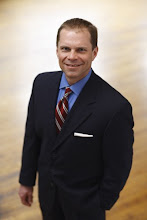I read recently that, according to the Census Bureau and the National Institute of Aging, the number of people in the US who are age 90 or older has nearly tripled since 1980. This is pretty remarkable. At the turn of the last century, life expectancy in this country was 47 years. While that figure is skewed by much higher infant mortality, people were living much shorter lives than they are today.
Keep in mind that life expectancy is the average. Half of the people will reach that age. The other half won't make it. If you are in good health, eat well, exercise and avoid smoking and heavy drinking, you are likely to live beyond life expectancy.
If you are curious about how long you will live, you might try the calculator at Living to 100 http://www.livingto100.com/. I did and I learned that I better plan to live to 100. (All of my grandparents lived to age 90. One lived to 95 and another lived to 98. So, I have a decent shot at making 100.)
When I give clients a retirement planning questionnaire, they often put down an age for life expectancy that they relate to their parents and/or grandparents. The problem is that they are likely to live longer than the generations that preceded them.
A good financial planner will model at least 5-10 years beyond current life expectancy. If the your goal is to live comfortably for as long as you live (i.e. to not run out of money), then you should make sure you have a safety margin for those extra years.
Happy Thanksgiving!

